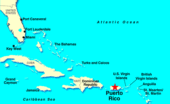Re Ian Bremmer 'Could third-party candidates upend the 2024 US election?' 3 April The current political movement in the USA…
Wednesday Night #1740 with Peter Berezin
Written by Diana Thebaud Nicholson // July 8, 2015 // Wednesday Nights // 1 Comment
The deeper problem is that it is virtually impossible to have an effective monetary union without a functioning fiscal union. A fiscal union, however, stands at odds with the principle of national sovereignty. There is little that European policymakers can do to resolve this issue. –BCA Global Investment Strategy
The bigger question is whether a Grexit would fundamentally change the way in which the eurozone pools its sovereignty on fiscal matters, or whether Grexit would be merely the prelude to a further break-up. I think it is unlikely that anything will change in the eurozone’s architecture, meaning that it will create further problems, particularly if any larger economy experiences similar difficulties to Greece in future. — Anton Muscatelli, Principal and Vice Chancellor at University of Glasgow: Greece in crisis: even if Grexit is averted, the eurozone needs a fundamental rethink
The world, from Nobel laureates to the man and woman in the street – and of course including the WN Greek caucus – has vociferously debated the merits of the Yes and No vote in the July 5th Greek referendum. With the vote concluded, as we witnessed history via real time notifications, the answer is a resounding NO (Greeks defy Europe with overwhelming referendum ‘No’).
So, now what?
Will all that has been said and written about the Greek crisis now become purely academic? We hope not. There is much to be learned from the voices on both sides. We have attempted to cull an array of opinion which you will find on Greece in 2015. Perhaps the most positive development is last Thursday’s IMF report that argued that Greece needs large-scale debt relief alongside more than 60 billion euros ($67 billion) in financing between June 2015 and the end of 2018. One option mentioned was doubling the grace period on Greece’s loans from EU countries to 20 years and the subsequent repayment period to 40. ( When Greece Forgave Germany’s Debt).
Finally, we quote a wise Wednesday Nighter’s advice to Greek prime Minister Alexis Tsipras.
1. When negotiating with your banker it is not productive to call your banker criminal…
Calling the IMF a criminal organization just days before a payment of $1.6 billion is due was not helpful…
2. When negotiating with your banker it is smart to eat some humble pie.
After all the Greek Governments must have made some errors to end up with debts of 180 per cent of GDP. Admitting past mistakes buys you empathy.
3. Do not blame your banker for having loaned you money, nobody forced Greece to borrow.
4. Avoid erratic behaviour, keep your negotiating partners well informed, avoid surprising them with major decisions without consultation. The referendum call should have been discussed in advance with the troika.
5. Do not forget that on the other side of the table are human beings. It is very important to built trust and even friendships to achieve your goals.
6. When you hold a weak hand, and you do hold a weak hand, do not bluff: Angela will call your bluff for sure…
7. When arguing with madam Merkel, it is not wise to use marxist language; Angela was born in the former communist East Germany…and is too familiar with that rhetoric.
8. Be patient, the Europeans desperately want to make a deal, give them a chance.
It is worth noting that the ever feisty Thomas Piketty is calling for “a conference on all of Europe’s debts, just like after World War II. A restructuring of all debt, not just in Greece but in several European countries, is inevitable.” His interview with Die Zeit is certainly forthright. At the opposite end of the spectrum, don’t miss Taki Theodoracopulos’ less than sympathetic view of the sins of successive Greek governments.
Having been consumed by serious debates for months/years, Monty Python’s sketch offers a welcome explanation of the Greek crisis.
On that note, we turn to a somewhat-similar-but-very-different case that has likely slipped under your radar, however neatly illustrates the underlying problem of the eurozone — Puerto Rico. “Its economy has been shrinking for years, its debts have been piling up for even longer, and its government has finally admitted that even brutal tax hikes and spending cuts wouldn’t be enough for it to pay back everything it owes.
Governor Alejandro García Padilla admitted to the New York Times on Sunday that the island is going to have [to] restructure its $72 billion in debt that is ‘not payable’…. we normally don’t think of the U.S. as the “dollar zone” like Europe has the euro zone, but that’s really what it is. Cities and states that, economically-speaking, are big enough to have their own currencies share a single one instead—and, more importantly, a single monetary policy, too.” (Why anyone who compares Puerto Rico to Greece is wrong).
With the “Greek Question” entering a new phase, we are at liberty to turn our attention to an even more worrisome question, the lurking Russian Bear. The concerns expressed by Max Fisher in his long article on Vox, How World War III became possible, are echoed more succinctly by Aurel Braun in the Globe & Mail, All quiet on the Russian front? Should you require more disquieting thoughts, The Russian Challenge, Chatham House Report gives ample ammunition. So, don’t be reassured by Mr. Putin’s Independence Day message to President Obama.
July 4th – Independence Day – brought several interesting and/or entertaining items. Among our favorites, What If America Had Lost the Revolutionary War? — A Fourth of July thought experiment, and How Old Were the Leaders of the American Revolution on July 4, 1776? Younger than you think, e.g. Marquis de Lafayette was 18 and Alexander Hamilton 21. There is also 8 things you didn’t know about the Fourth of July which reminds us that Thomas Jefferson’s original draft of the Declaration of Independence condemned slavery. The beautiful replica French frigate Hermione arrived in New York for the Glorious Fourth after sailing up the East coast. The original Hermione first brought the Marquis de Lafayette to the colonies in 1777 and again in 1780 when he carried the news that France would support the revolution. Finally, the new book by historian Joseph Ellis THE QUARTET: Orchestrating the Second American Revolution 1783-1789 sheds light on the role of the brilliant negotiator and often neglected Founding Father, John Jay.
After absorbing all that historical information, fans celebrated as the American women’s soccer team brought the holiday weekend to a rousing conclusion with their 5-2 FIFA World Cup triumph in Vancouver. Joe Biden was there with most of his family to cheer them on – and Stephen Harper was there for the photo-op, having flipped enough flapjacks in Calgary. Should pollsters read anything into the fact that Thomas Mulcair actually replaced Harper at the flapjack station when the prime minister departed?
We are still on the warpath (sorry!) over the proposed incredibly crass and Stalinesque Mother Canada statue on Cape Breton. We are not alone as the comments below Mother Canada name already taken, says Vimy Foundation indicate. There are several good suggestions about what to do with the money. But how to deter Mr. Harper?
 Then there’s that other monument to bad taste slated for Ottawa – a memorial to the Victims of Communism destined to occupy a parcel of land between the Supreme Court of Canada and the National Library previously designated as the site of a new federal court to be known as the Pierre Elliott Trudeau Judicial Building. Which, of course explains everything. If you haven’t been following the story, New Victims of Communism memorial in Ottawa a looming disaster will give you the background, but we particularly want to point you to this piece in the Ottawa Citizen by former Wednesday Nighter Irene Tomaszewski: How to honour the victims of communism. Again, how do we deter Mr. Harper and his minions? Whose vote do they think they are attracting with these AWFUL projects?
Then there’s that other monument to bad taste slated for Ottawa – a memorial to the Victims of Communism destined to occupy a parcel of land between the Supreme Court of Canada and the National Library previously designated as the site of a new federal court to be known as the Pierre Elliott Trudeau Judicial Building. Which, of course explains everything. If you haven’t been following the story, New Victims of Communism memorial in Ottawa a looming disaster will give you the background, but we particularly want to point you to this piece in the Ottawa Citizen by former Wednesday Nighter Irene Tomaszewski: How to honour the victims of communism. Again, how do we deter Mr. Harper and his minions? Whose vote do they think they are attracting with these AWFUL projects?




One Comment on "Wednesday Night #1740 with Peter Berezin"
Hi Diana,
Wow! This wrap up is quite something. Extremely rich background material. Totally outstanding – supplemented of course with Peter’s latest. The three I found particularly absorbing were the Chatham House Report on Putin’s strategy and capability, Piketty’s interview in Die Zeit and the background reading listed in the WP article of the Greek-German rugby game. One does not often see an extended discussion of German Ordoliberalism in English language material. I also enjoyed your gloom and doom analysis of the risk portrait going into the July 4th weekend. Quite a lot to chew on – with some more perspective from the Charlie Rose show this evening. (a Grexit with drachma hyperinflation and Russian/Chinese financial support for Greece was one of the scenarios proposed, in case you didn’t see it.) Chapeau to you for finding this stuff and threading it together in a coherent presentation. Many, many thanks!. It is well in front of material available elsewhere. It’s a real service to have it show up just like that in one’s mailbox. Wonderful! Guy Stanley